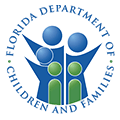Lesbian, gay, bisexual, transgender, queer, questioning, and other gender and sexually diverse (LGBTQ+) people are becoming more accepted in American society, yet stigma and other forms of harassment towards them still happen frequently. The counseling suite is no different.
Teens and younger adults who identify as LGBTQ+ may require assistance in locating a therapist who accepts them for who they are. An affirmative therapist provides you with acceptance and guidance in thinking through how decisions you make now might affect you later in life because the lives of young adults can change drastically and quickly. In this article, we will discuss how affirmative therapy supports the community.
What is Affirmative Therapy?
Therapy is frequently sought after by LGBTQ+ people for the same reasons that non-LGBTQ+ people do. Maybe you’ve lately begun experiencing panic attacks, are depressed, or have lost a loved one and need help getting over the grief process.
However, some LGBTQ+ people seek therapy because they face particular difficulties connected to their gender identity, sexual orientation, and/or gender expression. For instance, you might have had bullying or exclusion at school for dressing differently from the stereotypes associated with your assigned sex, or you might have come out as gay to your parent and not had this aspect of your identity acknowledged.
Issues pertaining to your gender and sexual orientation, as well as those unrelated to them, can benefit from affirmative therapy since an affirmative care therapist won’t criticize or attempt to eliminate any aspects of your identity. Instead, they are there to support you in reaching your therapy objectives, celebrate your identities, and deal with any bad effects that heterosexism, transphobia, and homophobia may have on your life.
A person’s identity and daily activities are separated by an affirmative therapist. Put differently, they view you as a whole person and assist you in examining how your actions align with your desired public persona. People who identify as LGBTQ+ may adopt detrimental coping mechanisms in response to prejudice, assault, and discrimination.
Self-harm, substance misuse, and seclusion are a few instances of these survival strategies. With affirmative therapy, you can find the causes of these actions and swap them out for actions that will help you prosper.
An affirmative therapist can assist you in exploring different approaches and their possible impacts on your life if you’re considering a social and/or physical gender transition. Throughout this process, you will take into account all of the numerous aspects of who you are, including your family, significant connections in your life, your current situation, and life-changing events from the past.
Gender Identity Definitions
If you’re a young adult or teen who identifies as LGBTQ+, you might get annoyed by other people’s incomplete knowledge of what gender identity, gender expression, and sexual identity actually mean, as well as the differences within these categories. You might also be looking for tools to help you better grasp the terminology that LGBTQ+ people use to define themselves on their own terms, which changes all the time.
One way to increase the amount of support you get from people in your social network is to point them toward the abundance of freely available educational resources. To provide safe spaces for youth of all sexual and gender identities, Advocates for Youth, for instance, has created a toolbox.
In addition, Parents, Families, and Friends of Lesbians and Gays (PFLAG) increased the focus of its publications to include assistance from transgender and gender-nonconforming people. More glossaries and lessons aimed at advancing our society and ourselves toward better acceptance of LGBTQ+ individuals can be found with a Google search if you have access to the Internet.
Community Issues
Regretfully, in the past, therapists have engaged in treating LGBTQ+ individuals as though they were sick. The Diagnostic and Statistical Manual of Mental Disorders (DSM) published by the American Psychiatric Association classified homosexuality as a condition until 1973.
It wasn’t until 2013 that the authors of the DSM replaced the term “gender identity disorder” with “gender dysphoria” in their list of diagnoses. Advocates for LGBTQ+ issues contend that concentrating on dysphoria amounts to treating gender variation as an illness. When it comes to accepting sexual and gender diversity, the mental health industry is still in its infancy.
Find An Affirmative Therapist Near You
An affirmative therapy practitioner will welcome any kind of questioning and be willing to admit their ignorance. Like everyone else, therapists are fallible human beings who make mistakes. On the other hand, the affirmative therapist will value your identity and consider your input carefully.
Beachcomber Recovery Center is available seven days a week to assist you with any issues you may have and provides affirmative therapy to LGBTQ+ youth and young adults. Contact us today for more information.






